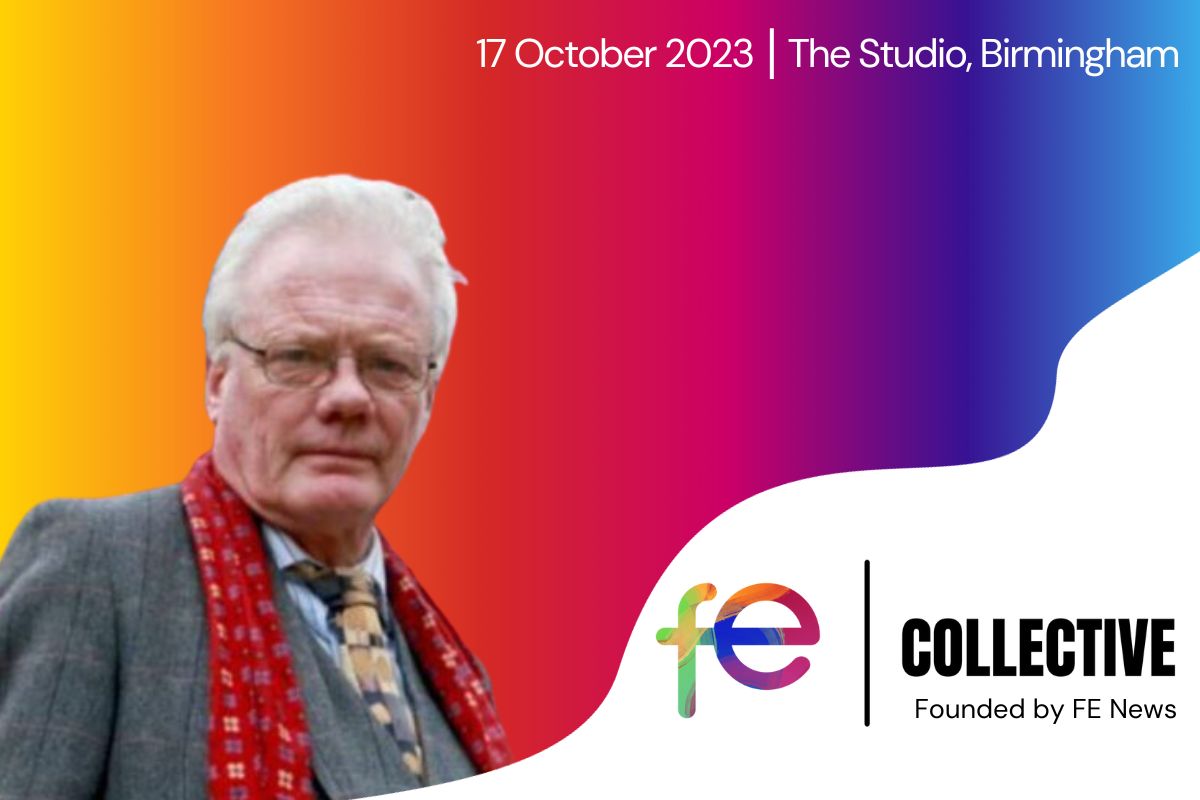AI and the implications for Further Education at the FE Collective

This article underscores the need to redirect resources from AI-driven material delivery to human judgment-based assessments of various intelligences, fostering a deeper understanding of qualities like creativity and originality in the realm of human intelligence.
We must not be constrained by language. As societies grow in sophistication, so they need new words, new terms, to express emerging conceptual subtleties. ‘Intelligence’ is a good case in point. We have long abandoned slavish adherence to IQ tests to define the term. FE in particular values various types of intelligence – spacial, musical, intrapersonal, and so forth. There are many ways of interacting intelligently with reality without being a geek.
Only a human can imbue a sense of purpose
The term AI has hijacked the word to express advanced functionality without defining the semantic beyond a sense that these machines are ‘clever’. We can climb into our self-driving car that will take us, intelligently, to a destination. But where? Only the human can imbue a sense of purpose, for example, Let’s go down the Nags Head. This purpose is derived from thirst, a desire to socialise, meeting a particular person, even a certain aesthetic, all emotionally based decisions. This is, for the moment, beyond the role of AI.
I recently marked an assignment generated by ChatGTP. I gave it a grudging pass. Like too many of my students’ work it was fluent, structured, marshalled all the relevant material in a Google-hunting sort of way. But it lacked any spark, any individuality, any sense of personal investment, any creativity. There was no judgement, just a bland acceptance.
What do we mean by ‘intelligence?
Which lays down the challenge – what do we mean by ‘intelligence’? The impact of AI, like all new technologies, will be massive. But let’s put it in context. By and large new technologies relieve us of drudgeries. Key-word searches relieve us of tedious combing through references. Instant access to facts means recall is less valued as a sign of ‘intelligence’. ChatGTP can take much of the humdrum out of assignment writing, particularly proof reading. But we have to remain in control, otherwise there will be a race to mundanity.
A shift in assessment
The seismic shift will be in assessment. My early school exams tested, largely, recall, fluency and spelling – all now automated. Nor were they very good signifiers of intelligence. Traditional forms of assessment are now busted, and all professionals associated with education will be casting around for new forms of reliable, meaningful and unbiased forms of assessment. Which throws down the gauntlet of what, exactly, are we looking for.
FE can take a leading role in this. Much of the work in colleges has been around ‘competence’, and this has been assessed by observation. Such assessment is time consuming and thus expensive. During COVID there were no quick fixes like fiddling grade boundaries. Competence is an exact judgement, and a backlog of assessment built up.
The implications are clear. Resources will have to shift from delivering material, which can now be achieved effectively through the application of AI, to ongoing assessment which for all but the most mundane tasks, requires professional judgement. We can then really get to grips with the assessment of, for example, kinaesthetic intelligence, interpersonal intelligence, naturalistic intelligence and other forms of an emerging understanding of what really counts towards the blanket term ‘intelligence’. This will not be easy: artistic ability, creativity, originality will be hard to pin down. But in the end AI has helped us out: it has moved us on from drudgery to the challenge of what it really is that we value in human intelligence.
By Paul Grainger, Honorary Senior Research Associate, UCL
Interested in meeting Paul in person? Join us at the FE Collective in Birmingham on October 17th! The FE Collective is a significant event where we collaborate to create a sector-specific report, crafted by the sector, for the sector. Don’t miss the chance to listen to Paul discuss topics like artificial intelligence, investments in the future sector, and progression. To find out more, join us at the FE Collective – get all the details here.
FE News on the go…
Welcome to FE News on the go, the podcast that delivers exclusive articles from the world of further education straight to your ears.
We are experimenting with Artificial Intelligence to make our exclusive articles even more accessible while also automating the process for our team of project managers.
In each episode, our thought leaders and sector influencers will delve into the most pressing issues facing the FE sector, offering their insights and analysis on the latest news, trends, and developments.











Responses